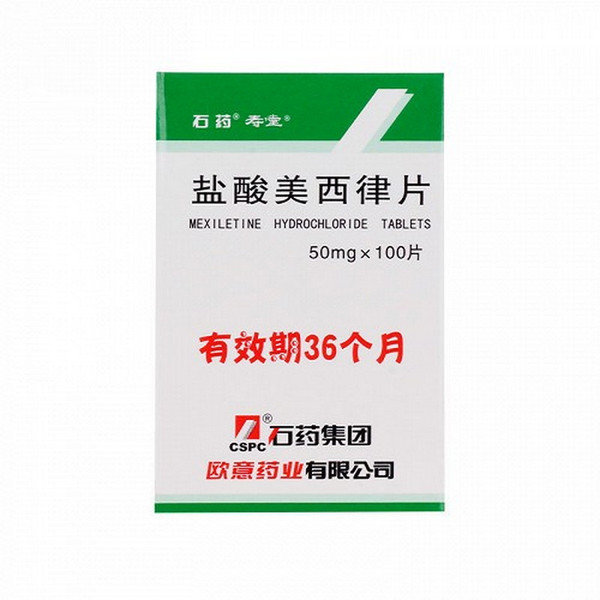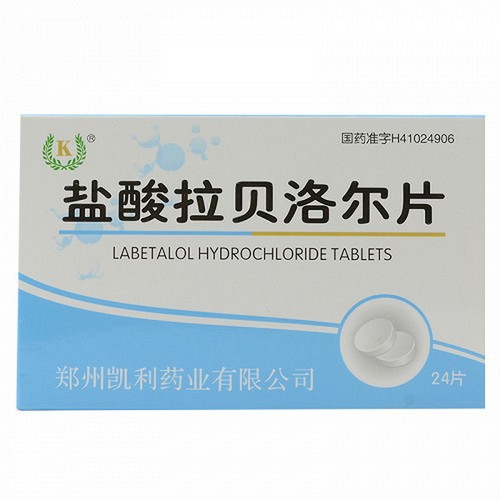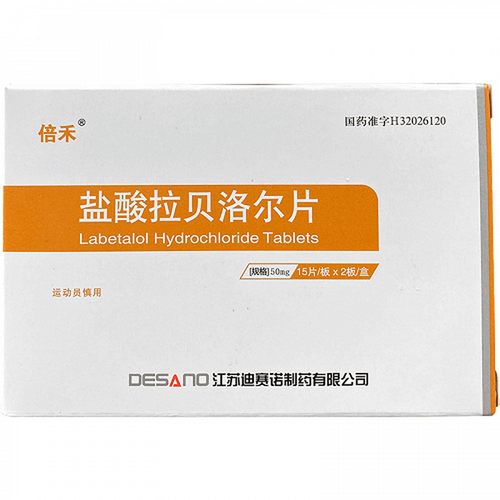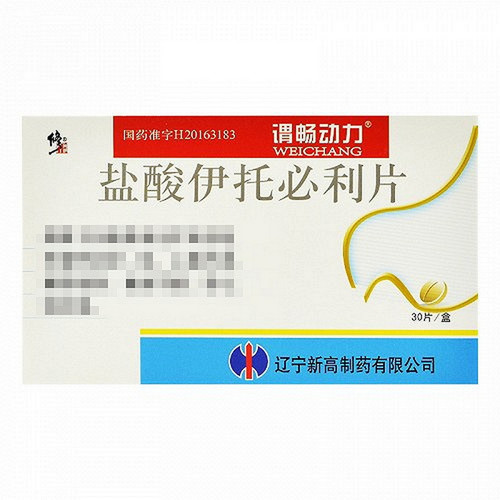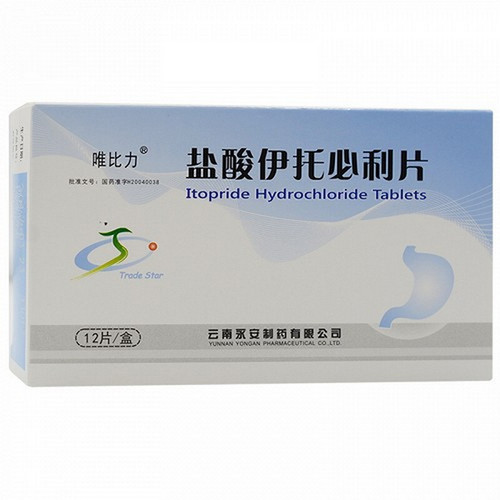Product Overview
[Drug Name]
Generic Name: Mexiletine Hydrochloride Tablets
Trade Name: Shiyao/Shoutang
English Name: Mexiletine
Chinese Pinyin: Yansuan Meixilv Pian
[Ingredients]
The main ingredient of this product is mexiletine 1-(2,6-dimethylphenoxy)-2-propylamine hydrochloride.
[Properties]
This product is a white tablet.
[Indications]
This product is indicated for chronic ventricular arrhythmias, including premature ventricular contractions and ventricular tachycardia.
[Dosage and Administration]
Usual adult dosage: 200-300 mg (4-6 tablets) orally for the first dose, followed by 100-200 mg (2-4 tablets) 2 hours later if necessary. The usual maintenance dose is approximately 400-800 mg (8-16 tablets) per day, divided into 2-3 doses.
[Adverse Reactions]
Approximately 20%-30% of patients experience adverse reactions after oral administration. 1. Gastrointestinal: The most common adverse reaction, including nausea and vomiting. Liver function abnormalities, including elevated GOT, have been reported. 2. Neurological: The second most common adverse reaction, including dizziness, tremor (first presenting as fine hand tremors), ataxia, nystagmus, coma and convulsions, diplopia, blurred vision, mental disturbances, and insomnia. 3. Cardiovascular: Sinus bradycardia and sinus arrest are generally rare, but chest pain, proarrhythmic effects such as ventricular tachycardia, hypotension, and exacerbation of heart failure may occur occasionally. Treatment includes discontinuation of the drug, use of atropine, pressors, and pacemakers. 4. Allergic reactions: Rash. 5. Leukopenia and thrombocytopenia may occur rarely.
[Contraindications]
1. Second or third-degree atrioventricular block and bifascicular block (unless a pacemaker is already present). 2. Cardiogenic shock.
[Precautions]
1. This drug may worsen arrhythmias in patients with life-threatening arrhythmias. This condition occurs in 10% of patients during programmed stimulation testing, but is no more common than with other antiarrhythmic drugs. 2. Diagnostic Interference: Overdose may produce prolonged P-R intervals and widened QRS complexes on the electrocardiogram (ECG). Increased aspartate aminotransferase levels may also occur. Antinuclear antibodies may occasionally be positive. 3. Use with caution in the following conditions: ① Intraventricular conduction block; ② Severe sinus bradycardia; ③ Severe hepatic or renal dysfunction; ④ Reduced hepatic blood flow; ⑤ Severe heart failure or hypotension; ⑥ Epilepsy. 4. Follow-up examinations during medication are recommended: ① Blood pressure; ② ECG; ③ Blood drug concentration.
[Use in Special Populations]
Precautions for Children:
The safety and efficacy of mexiletine in children have not been established.
Precautions During Pregnancy and Lactation:
No teratogenic or reproductive effects were observed in pregnant rats, mice, and rabbits at doses four times the maximum human oral dose. However, no such effects have been reported in humans. Therefore, it should only be used for therapeutic purposes that benefit the fetus. Mexiletine concentrations in breast milk are similar to those in maternal blood, so it is recommended that lactating women avoid using this drug.
Precautions for Elderly Patients:
Liver function should be monitored during use in elderly patients.
[Drug Interactions]
1. It may have synergistic effects with other antiarrhythmic drugs and can be used for refractory arrhythmias, but it should not be used in combination with Class Ib drugs. 2. In the early stages of acute myocardial infarction, morphine delays and reduces the absorption of this drug, possibly related to delayed gastric emptying. 3. Hepatic enzyme inducers such as phenytoin, phenobarbital, and rifampicin can accelerate the metabolism of this drug and reduce its blood concentration. 4. Antacids can reduce the bioavailability of this drug after oral administration, but can also increase blood concentrations due to increased urine pH. 5. Cimetidine can alter blood concentrations of this drug. Blood concentrations should be monitored. 6. Atropine may delay the absorption of this drug, but it does not affect the amount absorbed, possibly due to delayed gastric emptying. 7. Antiemetics such as metoclopramide increase gastric emptying, which may increase the rate of absorption of this drug. 8. Other: This drug does not increase digoxin plasma concentrations.
[Pharmacological Actions]
This drug is a Class Ib antiarrhythmic drug. Its chemical structure and electrophysiological effects are similar to those of lidocaine, inhibiting sodium ion influx, shortening the action potential, relatively prolonging the effective refractory period, and reducing excitability. Therapeutic doses have minimal effects on sinus node, atrial, and atrioventricular node conduction. In patients with a normal conduction system, it has no significant effect on sinus node automaticity, atrioventricular conduction, QRS complexes, or QT intervals. The effects on atrioventricular accessory pathway conduction are not consistent. Its electrophysiological effects also vary depending on dose and myocardial state (e.g., normal, ischemic, or hypoxic). High blood concentrations can significantly prolong the refractory period of myocardial conduction fibers. This drug has virtually no inhibitory effect on the myocardium.
[Storage] Store tightly sealed.
[Specification] 50mg x 100 tablets
[Packaging] Bottle
[Expiration Date] 24 months
[Approval Number] National Medicine Standard H13021318
[Manufacturer] Company Name: CSPC Pharmaceutical Group Ouyi Pharmaceutical Co., Ltd.
